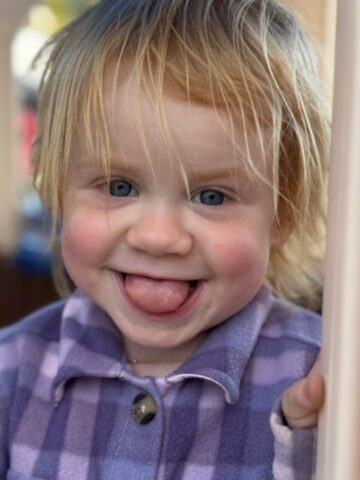Its name conjures up images of a familiar fairy tale, but Project Baby Bear has produced some very impressive real-world results that could save the lives of thousands of seriously ill infants.
The recently completed two-year pilot program at five clinical sites in California – including CHOC – helped doctors target a baby’s specific genetic disease in a matter of days, instead of the four to six weeks required for standard genetic tests.
That means quicker diagnoses leading to quicker treatments, less time in the hospital and more answers for anxious parents.
“It can be a real game changer,” said Dr. Jason Knight, a pediatric critical care physician and medical director of CHOC’s pediatric intensive care unit and one of the physician leads on the project. “It’s a tool we didn’t have a few years ago.”
Changing the game
By employing rapid whole genome sequencing (rWGS), doctors could gather vital information that changed the decisions families and clinicians made, and ultimately saved lives and resources. The procedure has historically been used only as a last resort.
By pinpointing the cause of rare disease with rWGS, physicians can customize treatment. And having a genetic diagnosis can eliminate the need for further tests, improve outcomes, reduce hospital stay length and improve the experience of care for families – all while also reducing costs.
In addition, substantial reductions in healthcare spending — $2.5 million — accrued largely because rWGS permitted doctors to discharge babies sooner and reduce the number of procedures that may have been performed in the absence of a precise diagnosis.
Avoided procedures included 11 major surgeries and 16 fewer diagnostic tests such as open muscle, liver and other biopsies that are performed under general anesthesia.
Success story
In one case, a newborn baby girl with a life-threatening irregular heartbeat was admitted to CHOC Hospital. Instead of undergoing an arduous battery of tests, the child was diagnosed within two days with Timothy Syndrome, an extremely rare cardiac condition that put her at risk for sudden death.
With the genetic diagnosis in hand, CHOC physicians were able to treat the infant with the appropriate medication for her condition. Her heartbeat was restored to normal, significantly reducing the risk of sudden cardiac death. Her physicians, secure in her diagnosis, implanted a pacemaker, dramatically improving her chances for a happy and healthy childhood.
She recently celebrated her first birthday.
“Without the results of her rapid whole genome sequence, she would have gone home on a different medication and been at a much higher risk for sudden death,” Dr. Knight said. “She got the right diagnosis and we gave her a pacemaker so her risk of sudden death went to zero.”
In all, Project Baby Bear provided diagnoses for 76 of the 178 babies who completed rWGS. This led to a change in the care of 66 babies. It diagnosed 35 rare conditions that occur in less than one in 1 million births. About 150,000 children could benefit from rWGS.
Turning every stone
Even if the test doesn’t diagnose a problem, it can help comfort families, Dr. Knight said.
“Even a negative test can be helpful for some families to know we’re not missing something,” he said. “It gives them assurance that we’ve turned over every stone.”
With the success of the study, Dr. Knight hopes to see the service expand to reach more patients.
“Should we be doing this with all newborns?” he asked. “Based on our experience with Project Baby Bear, it would seem feasible that for newborns and children in intensive care units without clear diagnoses, this should be part of our diagnostic process and the earlier the better.”
Multidisciplinary, multi-site effort
CHOC’s role in Project Baby Bear is a collaborative, multi-disciplinary effort involving many clinicians and staff, including research coordinators Cathy Flores, Erum Naeem and Ofelia Vargas-Shiraishi, and physician leads Drs. John Cleary, Juliette Hunt, Adam Schwarz and Neda Zadeh, in addition to Dr. Knight.
Led by Rady Children’s Hospital-San Diego, Project Baby Bear helps infants who are undergoing intensive care and covered by Medi-Cal. The other participating hospitals include UCSF Benioff Children’s Hospital Oakland, UC Davis Children’s Hospital in Sacramento, and Valley Children’s Healthcare in Madera.
The $2 million Project Baby Bear was funded by the State of California. In-kind contributions of $400,000 from Rady Children’s Hospital ensured more than 90 percent of the state funds were used to support the care and management of critically ill babies.
Learn more about the CHOC Research Institute.




